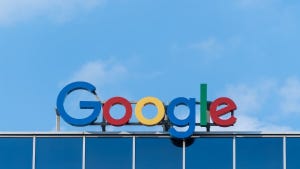Vodafone Turns Deep Red, Focuses on Cost Control
Vodafone's bottom line looks like a bloodbath, but core revenues and margins are solid
May 28, 2002

Despite the deep red gouge of a £13.5 billion (US$19.7B) pre-tax loss across its balance sheet, Vodafone Group PLC today announced annual results (for the fiscal year ending March 31) that offer some hope for the future, thanks to an increased focus on cost control.
That horrorshow of a bottom line, my droogs, was caused by a spring cleanout of goodwill amortization (£13.4B; US$19.55B) and one-off writedowns (£6B; US$8.76B), which -- although nasty -- were lower than some Vodafone-watchers had predicted. London-based analysts at Dresdner Kleinwort Wasserstein (DrKW) had been expecting writedowns of around £16 billion (US$23.3B) in total. However, their early comments did not include speculation on whether they expect further announcements by the wireless giant.
But while early market focus was on the enormity of the overall loss (reportedly the largest ever in British corporate history), Vodafone presented some generally impressive figures. Annual operating profit was up 35 percent at £7 million (US$10.21M), while turnover was up 52 percent at £22.8 billion (US$33.25B). The overall EBITDA margin (the margin before you start paying for any of the costs of those earnings) is now 36 percent, up three percentage points year-over-year. While not a spectacular figure by itself, this represents a notable achievement given the slight reduction in average revenue per user (ARPU) figures –- of which more later.
Another plus was the income boost from mobile data services. With high-margin non-voice revenues becoming the holy grail for wireless operators, Vodafone was coy about the exact margins on data. However, the total service revenues from data were up three percentage points to 11.1 percent, about £2 billion (US$2.9B). Vodafone aims to boost this to 20 percent by 2004, now that it has GPRS (general packet radio service) services on offer and 3G network launches on the horizon.
But the timetable for these launches has been moved back. This was caused, says Vodafone, by not only "later than expected availability of terminals and applications," but also "better voice revenues" than anticipated. (Ed. note: Is there a spin doctor in the house?)
On the downside, however, overall blended ARPUs (combined pre- and post-paid ARPUs) are down, or "stable" if you look at it from Vodafone's side of the fence. The ARPU figures are broken out by country in the press release.
Unfortunately for Vodafone's future share price, the results also focused the minds of the analyst community on how mobile operators will manage their businesses now that the days of organic customer growth and cheap capital are gone. The stock was trading down 4.5% mid-morning in London.
Analysts at Nomura Bank in London said: "We believe that these results are at the top end of expectations, [but we] remain concerned on what happens from here. Customer growth is slowing and spending [ARPU] is flat. As competition intensifies, we remain of the view that revenues and margins will come under pressure."
Nomura has a "sell" recommendation on Vodafone. As things stand, Vodafone has managed to mend some of the holes the price skirmishes of 2000 shot into its balance sheet, particularly in Germany.
Vodafone's D2 mobile arm is the second-largest player in the German market with a reported 21.48 million customers, hard on the heels of Deutsche Telekom AG's T-Mobile, which has 23 million subscribers. D2 increased its EBITDA margin year-over-year from 35 percent to 45 percent. This was while blended ARPUs fell from €378 (US$351) a year to €298 (US$277).
Vodafone proudly claims that it is the "most cost-efficient and profitable mobile network operator in Germany," which would certainly appear to be the case. T-Mobile has EBITDA margins of around 40 percent.
Vodafone has also managed to control the urge for a capital expenditure fix, parting with around £4.14 billion (US$6B) in capex during the past financial year -- a figure lower than both company guidance (of around £5 billion) and analysts' expectations. The company expects to keep capex at around £6 billion (US$8.75) in this financial year. After capex, Vodafone had a free cash flow of £2.36 billion ($3.44B).
The company's net debt amounted, at the end of March, to £12 billion (US$17.5B) -- a modest sum, when compared to the €65 billion ($60.38B) or so that both France Telecom and Deutsche Telekom have chalked up. Vodafone's interest payments for the year totaled around £845 million (US$1.2B). In comparison, DT is estimated to be paying out around €4 billion (US$3.71B) in annual interest payments.
The key question for all of the mobile operators is how to increase mobile use without hammering their margins. None of them want to see ARPUs fall, though this seems inevitable as they seek to compete on price with fixed-line networks. They are all pinning their hopes on fancy (and not so fancy) data services (anyone for texting?).
Vodafone is the world's biggest mobile operator, with access to 101 million mobile customers (some of these in partially-owned subsidiaries). It has a lot to gain from being everywhere, if only because of the clout it has when it comes to commanding -- and demanding -- economies of scale. The company intends to launch 3G services, at least on a trial basis, in Japan and major European markets during calendar 2002.
A Vodafone spokesperson would not expand on the plans for 3G services in the U.S., where Vodafone owns 44.2% of Verizon Wireless. On the question of gaining the whip hand there, they said Vodafone CEO Sir Chris Gent saw "no reason to alter the present relationship" with Verizon.
One stumbling block Vodafone may face in the U.S. is the delayed decision on the spectrum it thought it had bought following Nextwave Telecom Inc's troubles -- spectrum that Verizon Wireless needs to beef up its services there.
— Ouida Taaffe, special to Unstrung
http://www.unstrung.com
You May Also Like










